Reparations for Slavery, Vedanta & Blood Diamonds – the three protests I photographed in London on Friday 1st August 2014 were all related to world trade – the Atlantic Slave Trade and current devastation caused by mining industry and the diamond trade that funds Israeli war crimes against Palestinians.
Rastafari demand reparations for slave trade – Windrush Square, Brixton
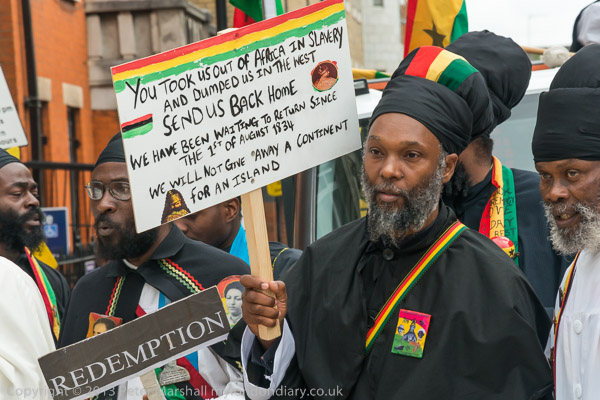
On August 1st 1834 the 1833 Abolition of Slavery Act came into force, ending slavery across the British Empire. But although the slave owners received compensation of £20 millions the freed slaves got none. They were not even freed, but converted to ‘apprentices’ who were expected to continue to work without wages for up to six years until 1838 and were unable to own land.
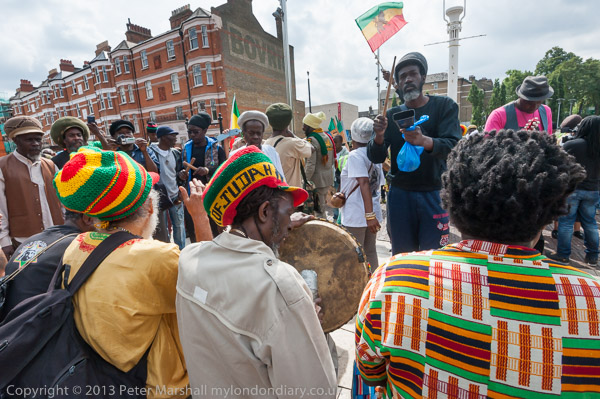
The payment to the former slave owners was huge – around 40% of the National Budget of the UK, and the Treasury who took out a loan to enable them to pay it. British tax payers – including many descendants of former slaves – were still paying off the debt until 2015, as a rapidly deleted tweet from the UK Treasury confirmed in February 2018.
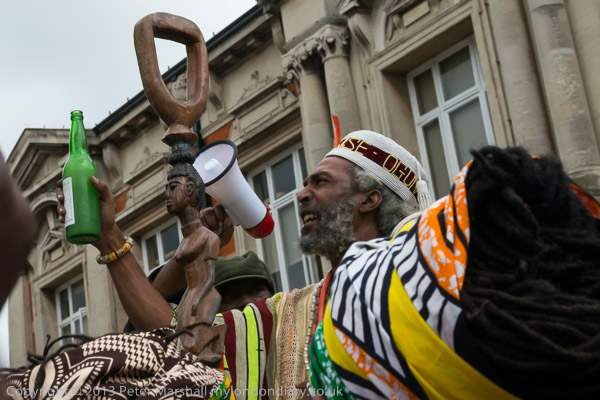
The Act abolishing slavery was designed largely to ensure that Britain’s hugely profitable sugar industry based on slavery continued after emancipation, and Britain also continued to import cotton grown by slavery in the southern states of the USA as well as sugar from slave plantations in Brazil and Cuba.
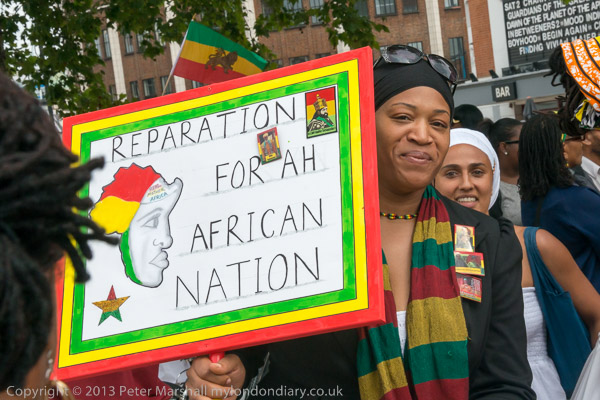
August 1st became widely celebrated as ‘Emancipation Day’ and it was the date chosen by Marcus Garvey to found the Universal Negro Improvement Association (UNIA) in Jamaica in 1914, and for a meeting six years later in Madison Square Gardens in New York attended by 25,000 of UNIA’s claimed membership of 4 million.
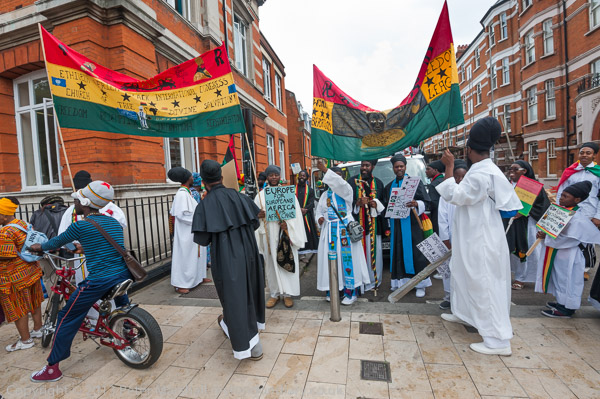
Demands for reparations to be made to the descendants of slaves have so far been met by only token measures, such as the renaming of streets and buildings and official apologies, with some legislation requiring companies to provide information about their involvement in the trade and insurance of slaves.
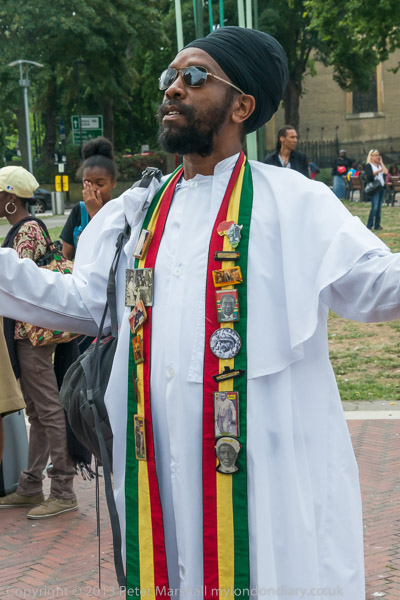
But since the 1990s there has been a growing movement demanding financial reparations both for slavery, particularly following the First Pan-African Conference on Reparations convened by the Organisation of African Unity and the Nigerian government and held in Abuja, Nigeria in 1993.
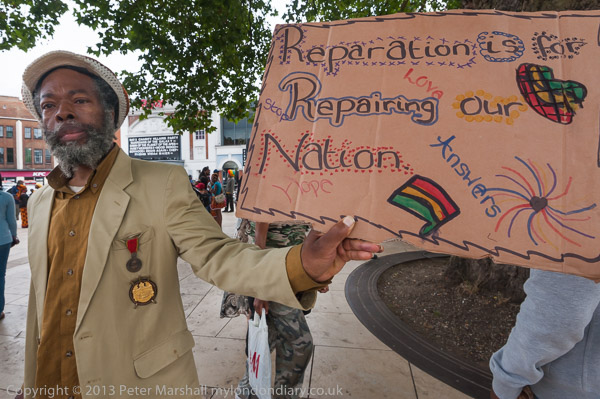
In the UK the movement was led by Bernie Grant, MP for Tottenham until his death in 2000. Prime Minister Tony Blair in 2006 expressed “deep sorrow” for Britain’s role in the slave trade, saying it been “profoundly shameful”, though as Wikipedia notes this was criticised as lacking any measures of reparation. A further public apology for London’s role in the slave trade came from then London Mayor Ken Livingstone during the commemorations of the 200th anniversary of the passage of the 1807 Slave Trade Act.
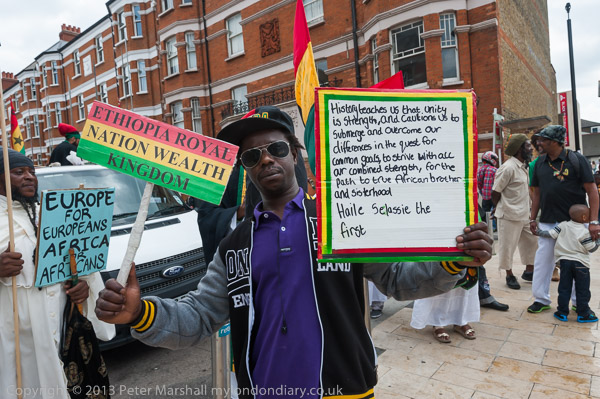
A case was for compensation was brought against Lloyds of London in 2004, but failed. The same year a Jamaican Rastafari call for European countries, particularly the UK to support the resettlement of 500,000 Jamaican Rastafarians in Africa in a scheme costed at £72.5 billion was rejected. Other claims have been lodged by in 2007 by Guyana, in 2011 by Antigua and Barbuda and Barbados.
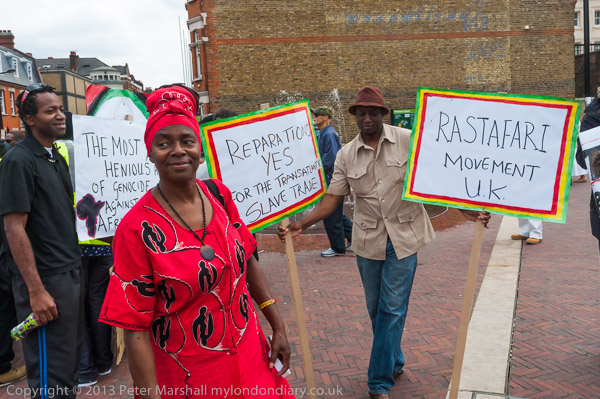
On 1st August 2014, the 100th anniversary of Garvey’s setting up of the UNIA. a large group of mainly people of African and Afro-Caribbean descent gathered in Windrush Square in Brixton for several hours of speeches, celebration, drumming and dancing before they were to march to Parliament to make their demand for reparations. The march has become an annual event in London, but I had to leave shortly before it began.
Rastafari demand reparations for slave trade
Vedanta told ‘end your killing’ – Lincoln Inn’s Fields
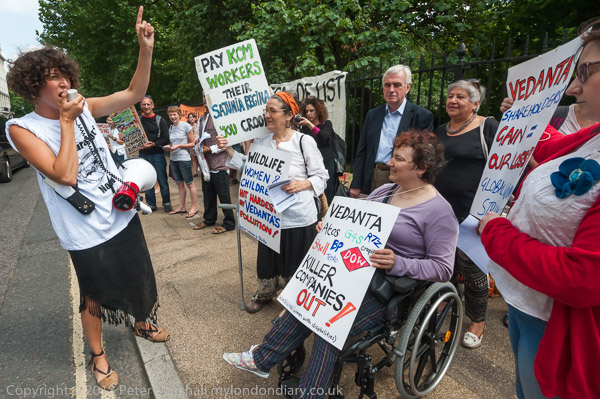
I joined the protest outside the building in Lincoln’s Inn Fields where the FTSE 250 British-Indian mining company Vedanta Resources was holding its AGM. Here and at other protests in Zambia and Odisha and Delhi in India.
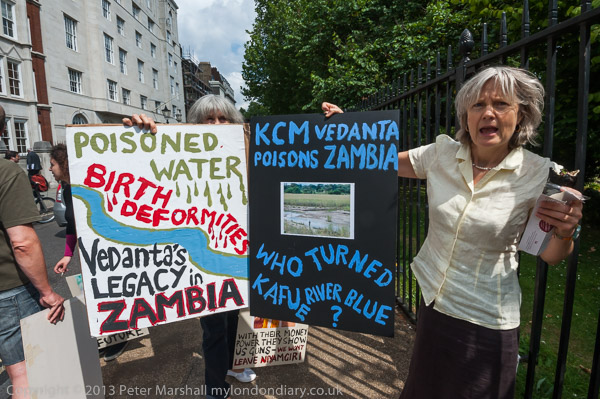
Vedanta is a huge company which protesters say is “guilty of thousands of deaths, environmental devastation, anti union action, corruption and disdain for life on earth. They have become one of the most hated and contentious companies in the world.“
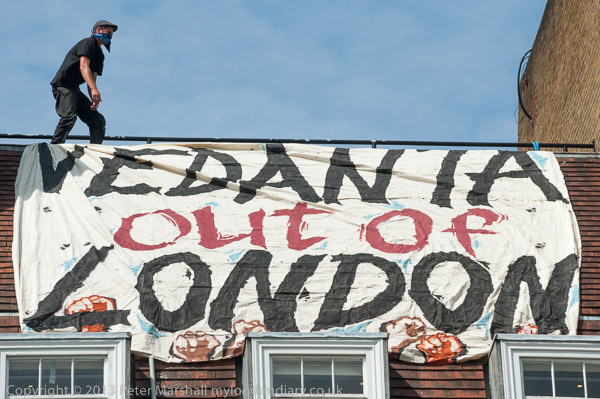
Their activities, particularly their attempt to destroy the sacred Nyamgiri mountain in India for its aluminium ore, have led to protests around the world, and an Indian Supreme Court decision that, at least for the moment have halted the mining there.
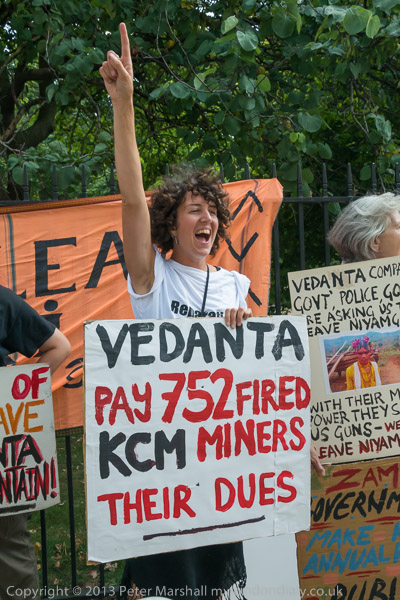
Another setback for Vedanta was the research by activist group Foil Vedanta into their subsidiary Konkola Copper Mines in Zambia, accused of poisoning thousands and causing ongoing birth deformities by major pollution spills in 2006 and 2010. The research showed the company which was claiming it was making a loss and so unable to pay its fines and tax bill was actually making around $500 million a year.
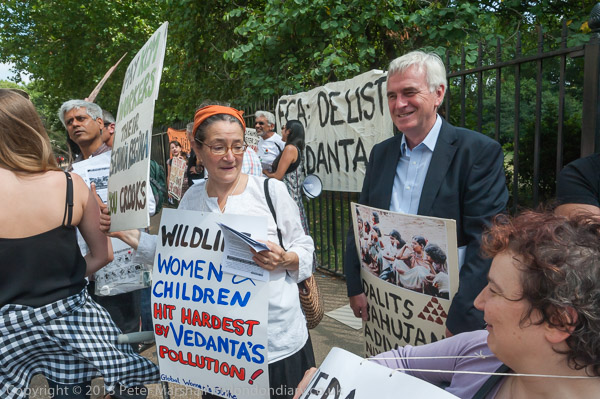
Vedanta’s problems being made public resulted in a dramatic crash in its share price and the previous December it dropped out of the FTSE100. Billionaire owner Anil Agarwal responded by buying large numbers of the shares and was now said to own over two thirds of the company. But there were other shareholders going into the AGM, including a few activists who had bought a share to entitle them to attend and ask questions.
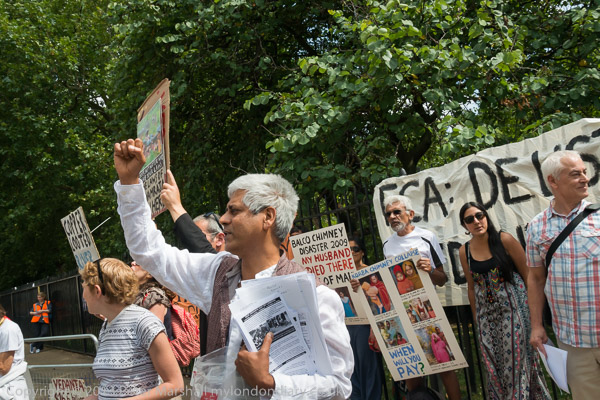
The activities of these activists, both inside and outside the AGM every year, were eventually were an important part in the decision four years later by Agarwal to make Vedanta a private company.
Vedanta told ‘end your killing’
Boycott Israeli Blood Diamonds – De Beers, Piccadilly
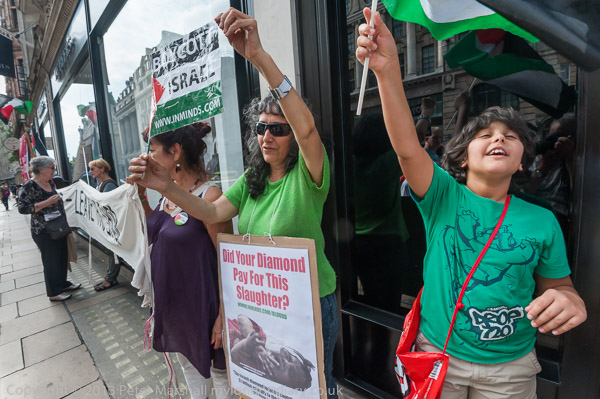
Finally I made my way to Piccadilly where pro-Palestinian campaigners were protesting in front of De Beers jewellery shop, calling on people to boycott diamonds cut and polished in Israel.
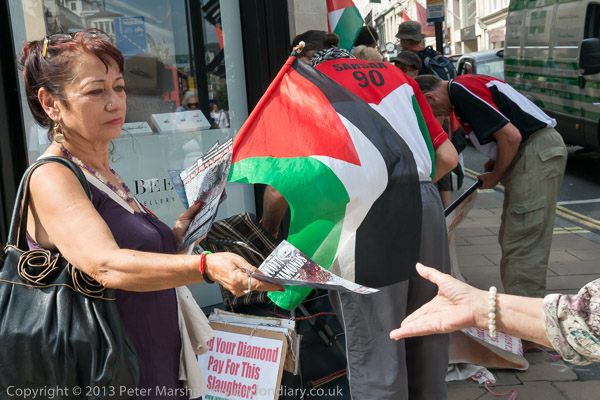
Although there are no diamonds mined in Israel, according to Wikipedia, almost a quarter of Israel’s total exports come from the sales of diamonds cut and polished in the country and they account for almost one eighth of the total world production.
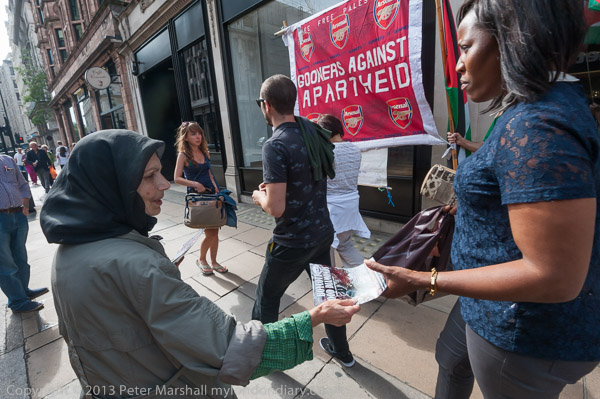
Israel claims that all these diamonds are covered by the ‘Kimberley Process’ which aims to prevent diamonds mined in conflict areas and sold to finance war and insurgency coming to the market. But campaigners say that this defines blood diamonds too narrowly, enabling Israel’s diamond-cutting industry to avoid attention, and the “Boycott, Divestment and Sanctions (BDS) campaign, among others, has called for diamonds processed in Israel to be considered conflict diamonds.”
Boycott Israeli Blood Diamonds